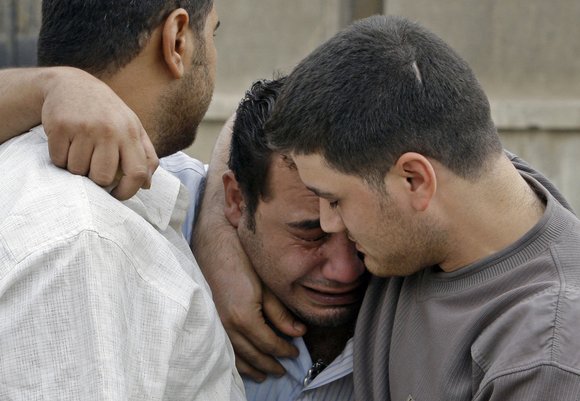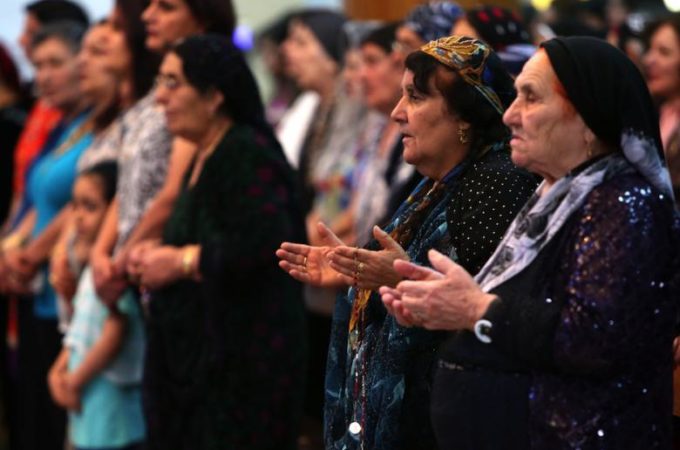We live at an unprecedented time in the modern history of the church. The persecution of Christians is reaching historic proportions. Matt Hadro of the Catholic News Agency writes “Global persecution of Christians has risen for the fourth year in a row and is on a ‘rapid rise’ in Asia …”
Open Doors, an international organization that tracks the persecuted church, notes in its 2017 Global Watch List: “All top 10 countries with the worst persecution of Christians are in Asia and Africa. Somalia ranks second on the list [after North Korea], followed by Afghanistan, Pakistan, the Sudan, Syria, Iraq, Iran, Yemen, and Eritrea.” They maintain a world map that identifies the countries with the greatest persecution of Christians.
At the beginning of the 20th century, Christians made up about 20 percent of the population of the Middle East. Shortly into the 21st century that ratio has been reduced to five. Christ followers are being driven from their historic localities in Egypt and the Middle East.

The church in Iraq dates back 2000 years. The Apostle Thomas planted the first church there on his way to India. Today, the Church in Iraq is being pressed into extinction, from an estimated 1.4 million Christians in 2003 to today’s estimates of 260,000 – 350,000. And many of these have fled to Kurdistan in northern Iraq.
The Christian community in Iraq, and in other countries in the region, has been terrorized by Islamists who want to rid the Middle East of Christians. Their methods include rape, and forcing young Christian women to marry jihadists. Christians have been crucified, beheaded, shot, burned to death and butchered. This is what Open Doors describes as smash persecution – “violence directed against people because of their faith.”
In addition to smash persecution of Islamists and others like the North Koreans, a more subtle form of oppression is tormenting many countries, including nations in Western Europe and North America. Observers describe what happens “when the implicit and indirect power of culture, over decades, creates a society or situation that freezes Christians out of normal life. Massive pressure from friends, neighbors, family and the government can make it practically impossible to function as a Christian.” Open Doors calls this “squeeze persecution.”Christians in the West have not experienced smash persecution, have not suffered in kind or degree of violence as their brothers and sisters in Africa and the Middle East. But squeeze persecution is now a reality in the West. The fundamentalist atheist movement is using tools of moral and cultural relativism to “squeeze” Christians from the marketplace and public square. They want to restrict Christian conviction to a personal, private sphere. Followers of Jesus Christ are being fined, forced out of their jobs, and deprived of their businesses, homes and professional licenses for failure to yield to a political correctness dictated by the elites.
One current example is a case before the US Supreme Court. Licensed Christian counselors treating homosexuals who want to leave their lifestyle are prohibited from helping them. The plaintiff is demanding that Christian counselors deny their consciences, ignore biblical teaching and embrace the mistaken idea that homosexuality is a valid lifestyle. We have written about this squeeze persecution here and here.
While the Church in much of the world has known suffering and even martyrdom, the Church in the West has enjoyed relative personal peace and security … affluence, even. For generations, Christian thought has influenced the culture of the West. The Church has known little of suffering in modern times. Today she functions from what Francis Schaeffer called a “personal peace and affluence” theology. But this is changing as the forces of fundamentalist atheism in the West and militant Islam from the East make their anti-Christian march through the world. I treat these twin threats at length in my book, Emancipating the World.
Is it time for the global Church to reflect at a new level on suffering? Do Christians in the West need to develop a theology of suffering? This might be an essential exercise to equip the Church to deal with the global persecution now at the doorstep. Maybe this is an application of what Peter writes in his first epistle, “preparing your minds for action.”
This is the first of a series of blog posts that will examine what we can learn from 1 Peter written to the persecuted church some 2000 years ago, but so relevant today.
- Darrow Miller






